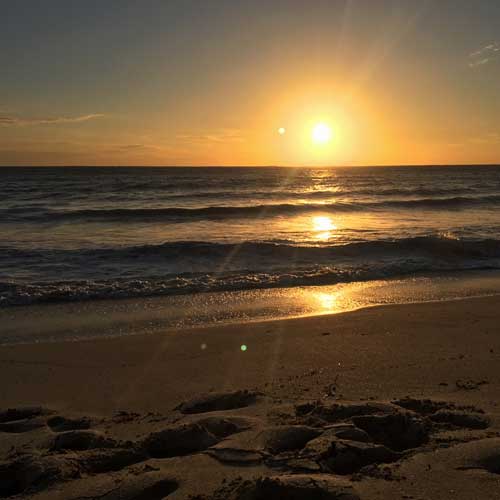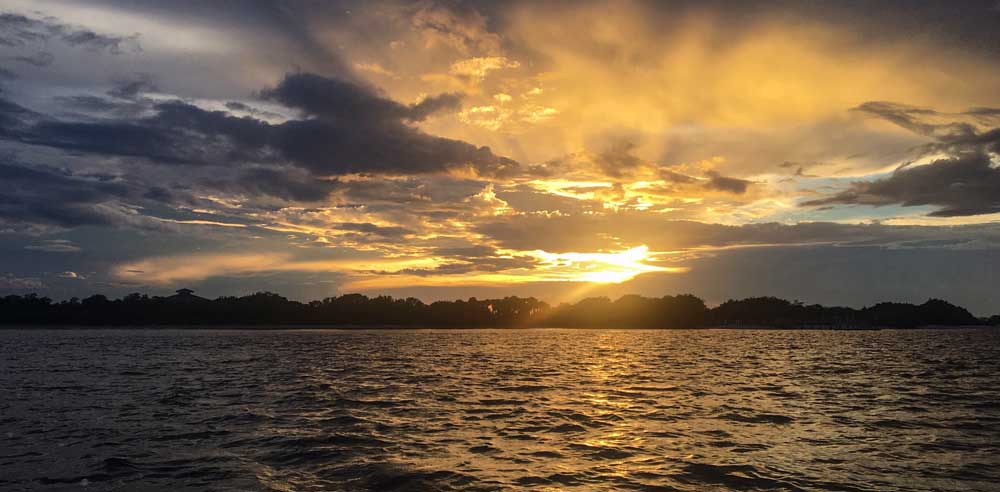Plenary Speakers
Meredith Howard (Tuesday, 11/5/19, 11AM-12:45PM) - Environmental Program Manager at Central
Valley (CA) Regional Water Quality Control Board; Meredith
Howard works with water quality regulatory agencies (federal, state, and
local), California Tribes, and the scientific community to develop
mitigation and management strategies for both marine and freshwater
HABs. Her research focuses on the transport of cyanotoxins across
the freshwater-to-marine continuum and the improvement
of monitoring tools that can address the challenges
of monitoring interconnected waterbodies and watersheds. These
systems typically traverse multiple management
boundaries and state and country jurisdictions, therefore her
goal is the development of HAB monitoring and management
strategies that can be applied cohesively across the
freshwater-to-marine continuum.
Stephanie Moore (Wednesday, 11/6/19, 12:45-2PM) - Research Oceanographer at NOAA's Northwest Fisheries Science Center; Stephanie Moore works with coastal communities to build resilience to HABs by providing early warning of toxic blooms and identifying risk reduction strategies for fishery-dependent communities - many of which face significant social and environmental health challenges that are expected to worsen as a result of climate change. She uses high resolution climate and weather information as well as data generated by robotic biosensors to gain a predictive understanding of HABs and their interaction with the marine environment.
Morgan Steffen (Monday, 11/4/19, 12:45-2PM) - Assistant Professor at James Madison University; Morgan Steffen uses a systems biology approach to examine microbial interactions and nutrient cycling in freshwater cyanobacterial harmful algal blooms in systems such as Lake Erie and Taihu.
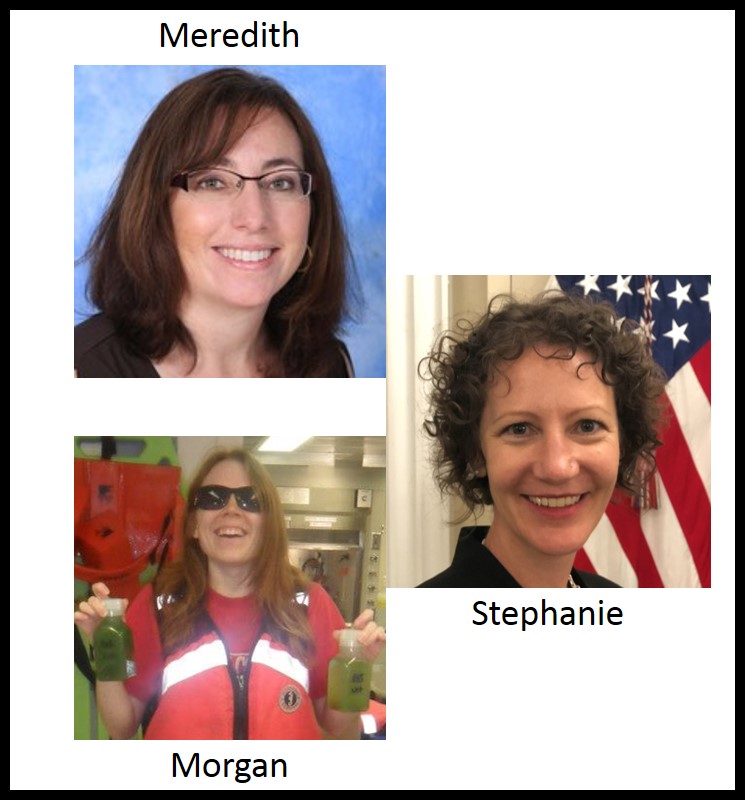
Conference Schedule

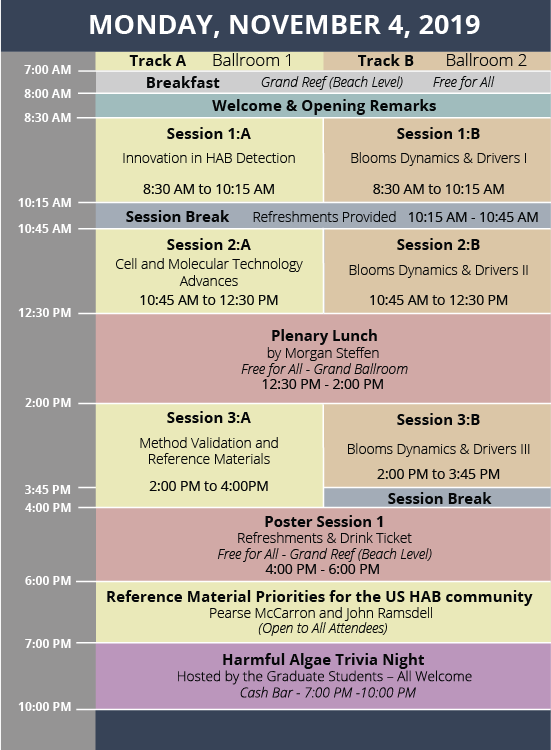
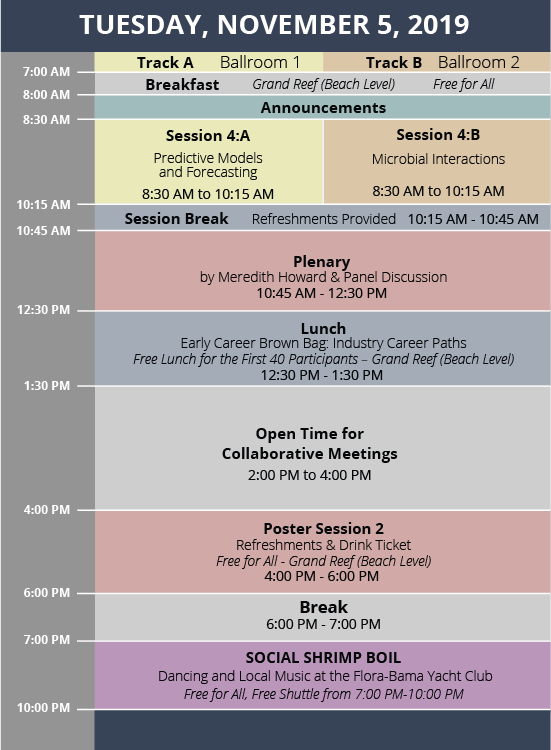
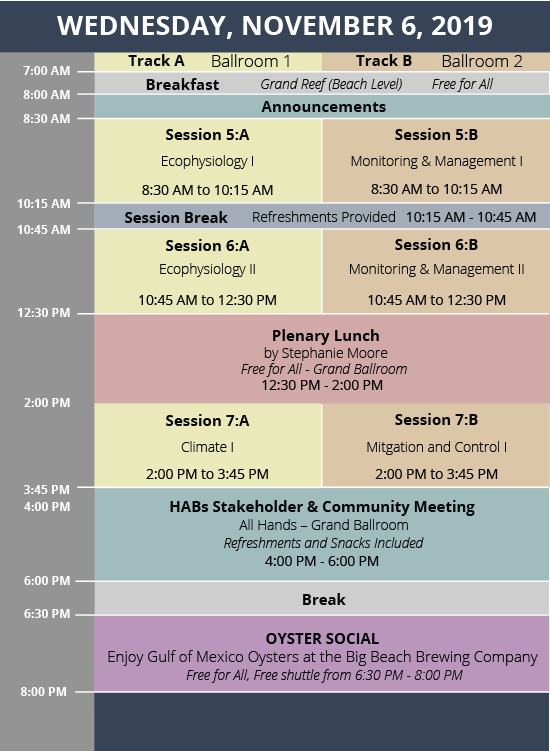
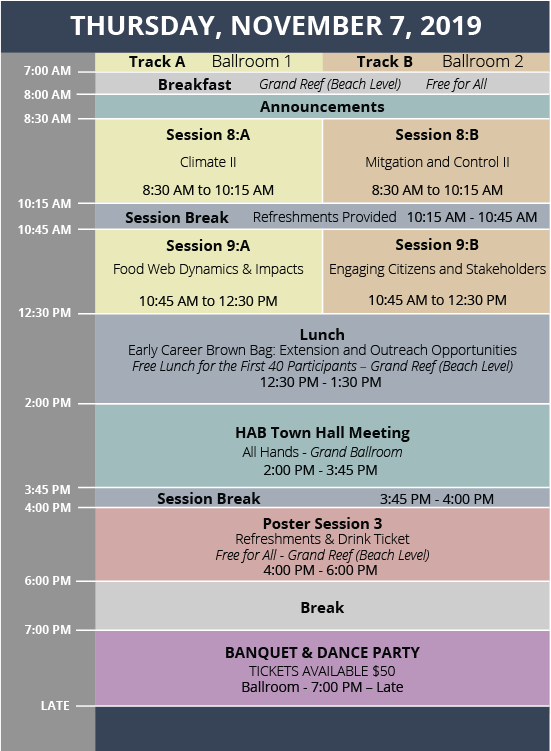
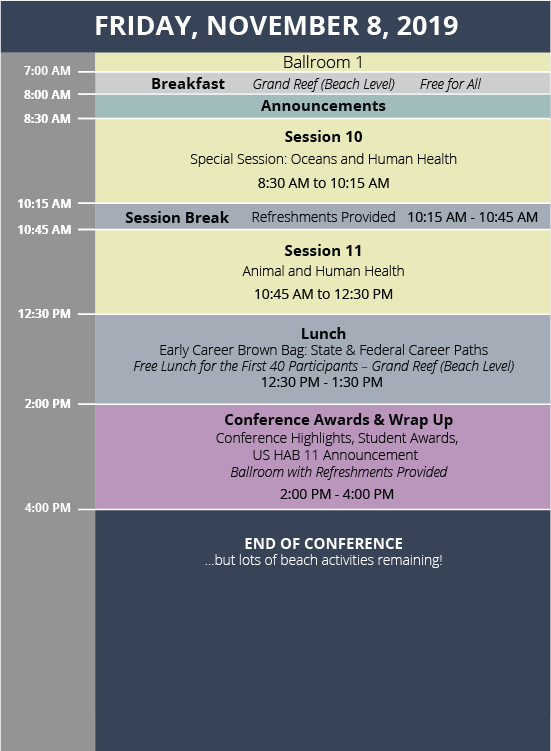
Workshops
We currently have five workshops scheduled on Sunday, 3 November 2019. See full day schedule of workshops. Please pay for the workshops by 15 October 2019 using the link below. Feel free to reach out to each workshop contact person if you have questions about each event.
(3)
The theory and process of running the
CyanoDTec and DinoDTec assays to detect toxic cyanobacteria or
dinoflagellates, respectively;
Time: 8:00am-4:00pm; Conveners: Mark Van Asten
(mark@phytoxigene.com) (4)
Imaging FlowCytobot;
Time: 8:30am-4:30pm; Conveners: Lisa Campbell (lisacampbell@tamu.edu),
D. Henrichs (Texas AM University); Ivory Engstrom, Vinnie
Ferreira (McLane Research Labs) (5)
Marine and freshwater phytoplankton
identification;
Time: 9:00am-12:00pm; Conveners: Alan Wilson (wilson@auburn.edu)
and Alison Robertson

Abstracts
Our conference program is now available!
The abstract book is available!
Our abstract deadline has passed. We received 222 abstracts, including 125 oral presentations, 80 posters, and 17 speed talks + posters. We are reviewing abstracts now and hope to connect with presenters soon about the status of their submission.
Each oral presenter shall be entitled to no more
than 12 minutes for a presentation plus 3 additional minutes for
questions (15 minutes total presentation time). Oral
presentations should use PowerPoint (widescreen 16:9
format). Slides, overhead
projectors, and video players will not be available or allowed.
Poster maximum dimensions: 30" x 40".
All presenters are
required to pay their own registration, accommodation, and travel
expenses. The symposium organizers cannot subsidize
registration fees, travel, or hotel costs.
